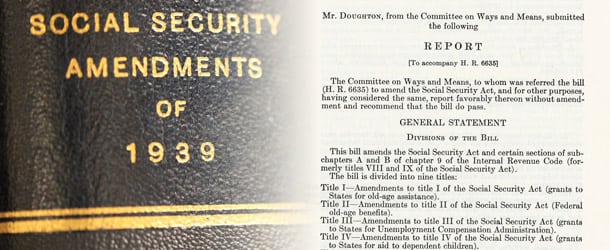The original Social Security Act provided only retirement benefits, and only to the worker. The 1939 Amendments made a fundamental change in the Social Security program. The Amendments added two new categories of benefits: payments to the spouse and minor children of a retired worker (so-called dependents benefits) and survivors benefits paid to the family in the event of the premature death of a covered worker. This change transformed Social Security from a retirement program for workers into a family-based economic security program (the 1939 Amendments also increased benefit amounts and accelerated the start of monthly benefit payments to 1940). The 1939 Amendments thus became a pivotal turning-point. Indeed, the 1939 law is probably second in importance only to the original Act itself in shaping Social Security in America.
